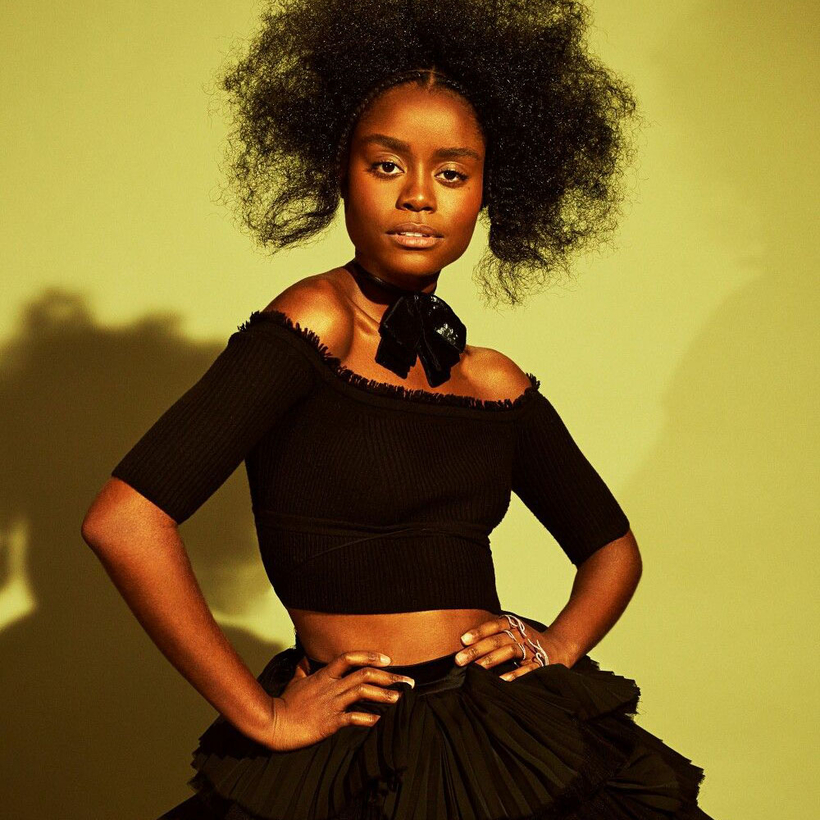Denée Benton has a knack for finding strong, self-possessed characters to play. “I’m not at the place in my career yet where I get to pick the roles that I want,” says the American actress, 30, from her home in New York City. “And so it’s this really special thing that’s happened. I feel this sort of spiritual kinship with them.”
Since her small part in 2015’s reality-TV satire Unreal, in which Benton’s character, Ruby, provided the much-needed representation of a Black woman, the actress has starred as Eliza Hamilton in Lin-Manuel Miranda’s record breaker, and as Natasha Rostova in Natasha, Pierre & the Great Comet of 1812, a musical adaptation of War & Peace. Benton’s performance marked the first time a Black actor took the lead role and earned her a Tony nomination.

“They always say in our industry that what’s meant for you won’t pass you by,” Benton says. “I’m sure that’s not always how it feels, but with these roles, it really does feel that way.”
For Benton, who grew up in Florida, acting and performing have been constant mainstays. “My parents were always incredibly supportive,” she says. “I grew up in the church, and if you can sing, or if you have any kind of artistic ability, the language around a gift you’ve been given is something that starts when you’re really young.”
As a child, she belted out gospel songs with the precociousness of a natural performer, but it took a while for Benton to realize that acting and singing could be a career. “It wasn’t until later in high school that I understood that you could really go to drama school and do it as a professional training,” she says. “But one thing that I did feel is that, whatever I did, I needed to do my absolute best and be excellent at it.”
“My grandparents were not given the same access or anywhere near the same mobility that I was given,” says Benton, whose family lived through the Great Depression and the Jim Crow era of the American South. “And so there is this awareness that you stand very specifically on the shoulders of people who worked with less to give you more.”

Now Benton is back on TV with the forthcoming The Gilded Age, a period piece from Downton Abbey’s Julian Fellowes, chronicling the growth, opulence, and greed of post–Civil War New York. Ruthless new-money railroad tycoon George Russell; the Astors, America’s first millionaires; and Ward McAllister—all make appearances.
Starring alongside Christine Baranski and Cynthia Nixon, Benton plays Peggy, an ambitious writer who finds herself privy to the machinations of upper-class Manhattan when she gets a job as a secretary in an aristocratic household.
“I really got to be a collaborator in the ways that Peggy ended up on the screen,” says Benton. As well as the resourcefulness and ardor she needed to turn on for the role, Benton mined her own experiences with racism and injustice to inform her part. “It is always kind of shocking how easy it is to fall into those shoes because it doesn’t feel that far removed from many experiences that I’ve had. I understand the gift of having mobility and then also the burden of being a Black person in white spaces that’s expected to sort of behave with this perfect tightrope of being ‘one of the good ones.’ I didn’t have to make that many leaps to really relate to where she was at.”
Benton has a pretty good idea as to why these class-based period pieces continue to captivate audiences. “If we really look at it, our class structures just haven’t changed that much. George Russell and those stories are like the original Jeff Bezos. It feels like they are a very direct lineage to that kind of structure in our world.”
The Gilded Age premieres on HBO Max on January 24
Bridget Arsenault is the London Editor for AIR MAIL

